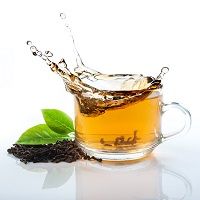Article
Combining Green Tea and Iron Does Not Help IBD Patients
Author(s):
Despite green tea’s many health benefits, combining it with dietary iron does not produce any benefits for inflammatory bowel disease (IBD) patients.

Despite green tea’s many health benefits, combining it with dietary iron does not produce any benefits for inflammatory bowel disease (IBD) patients.
The findings of a recent study using a mouse model with IBD were published in the American Journal of Pathology.
Matam Vijay-Kumar, assistant professor of nutritional sciences, Pennsylvania State University, and colleagues found that EGCG, the primary compound in green tea, inhibits myeloperoxidase, a pro-inflammatory enzyme, which is released by white blood cells during inflammation.
Vijay-Kumar stated, “If you drink green tea after an iron-rich meal, the main compound in the tea will bind to the iron. What that occurs, the green tea loses its potential as an antioxidant. In order to get the benefits of green tea, it may be best to not consume it with iron-rich foods.”
According to Vijay-Kumar, iron-rich foods include red meat and dark leafy greens like kale and spinach.
Inactive myeloperoxidase would typically help reduce IBD flare-ups, but when EGCG and iron are ingested together, the ironbound EGCG is unable to restrain myeloperoxidase.
Essentially, experts found simultaneously consuming green tea and iron supplements would be counterproductive, since both nutrients would cancel each other out.
The authors concluded, “The benefit of green tea depends on the bioavailability of its active components. It is not only a matter of what we eat, but also when we eat and what else we eat with it.”





